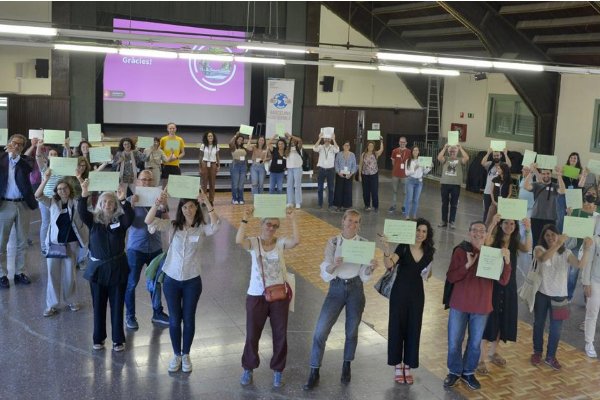Cities embrace the Doughnut
Ever since the city of Amsterdam first experimented with bringing the thinking of the Doughnut into its circular strategy in 2020, cities across the world have been starting their own journeys with the Doughnut.
Over the last two years, we at the Doughnut Economics Action Lab (DEAL) have been learning with and from local governments as we support their own explorations of Doughnut Economics.
Over 50 places around the globe – from Thimphu in Bhutan to Barcelona in Spain and Cali in Colombia – have been adopting the holistic and transformative ways of thinking that Doughnut Economics brings.
We at DEAL have been creating tools for cities, drawing from the concepts of Doughnut Economics, that can be freely used, adapted and contextualised by places, responding to their own unique challenges.
Working within their own possibilities, cities are innovating and experimenting, ‘getting started with the Doughnut’ in different ways.
Examples include using the Doughnut as a unifying holistic framework to guide all policymaking, like in Nanaimo, Canada; developing a holistic set of data as the foundation for a ‘transition dashboard’ for the region and all its organisations in Brussels Capital Region and developing a decision-making software tool in Cornwall.
The Doughnut’s appeal
We have been talking to and learning from cities about their experiences and asking why the Doughnut resonated with them.
It is often the holistic, big-picture thinking – the ability of a single image to hold all themes, big and small, together – that first draws them to the Doughnut.
Cities are often already working with different local and international frameworks, reporting and monitoring mechanisms, so it has been revealing to learn why they chose to add one more new framework to the mix.
For many, Doughnut Economics opens up spaces for cross-departmental conversations; it offers ways to develop overarching visions that help join up sectoral policies and strategies; it makes visible the contributions of different streams of work towards a common goal; it keeps the interconnections visible; it makes talking about complex issues easier and offers a common language that officials and communities can both speak and understand.
Finally, it guides the process of setting a transformative and holistic agenda and vision that many can get behind and feel hopeful about – from residents to community organisations, elected officials and policymakers.
Most cities are early in their journeys, and we continue to learn with them about what Doughnut Economics looks like in practice.
You can join the DEAL community as well, and learn more about the cities around the world that have embarked on their journey.
Click here to follow the work of cities with the Doughnut.
 Play Video about This Rock Might Just Save The World
Play Video about This Rock Might Just Save The World Play Video about Play 2 hours of rock
Play Video about Play 2 hours of rock Play Video about Play 2 hours of brook
Play Video about Play 2 hours of brook Play Video about Play 2 hours of sheep
Play Video about Play 2 hours of sheep











































